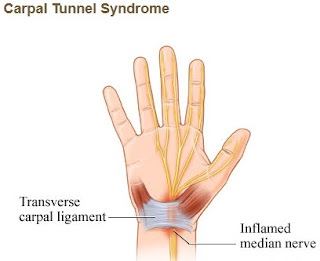Buerger's disease is an illness in which your blood vessels
would be inflamed and possibly filled with blood clots that could endanger your
health. The earliest signs of Buerger’s disease are in the hands and feet but
it may travel to the legs and feet. People over age 40, who reside in Middle
Eastern nations and women are more at risk of developing Buerger's disease than
others but this is generally a rare disorder that is not common among those in
the Western world. Smokers also put themselves at risk of getting this disease
and a few people with cardiovascular problems may develop it.
Major Symptoms
The most common symptom of Buerger's disease is pain in the
hands and arms as well as in the legs and feet. Inflammation in the veins is
another main symptom and some people get sores on the skin's surface. Others
with Buerger's disease may notice paleness in their skin and in severe cases,
death from blood clots could occur. Others with Buerger's disease may
experience swelling in the joints. If these syptoms are frequent, it is time to
meet with the doctor for treatment.
Managing and Treating Buerger's Disease
Smoking increases your chances of getting Buerger's disease
so if you smoke, you should quit immediately. Avoid excess exposure to cold
temperatures because this makes the blood vessels contract and it makes your
symptoms worse. Your best bet is to remain as warm as possible when managing
Buerger's disease. Wear comfortable and well-fitted shoes and keep your nails
trimmed since ulcers around the skin are common for those with Buerger's
disease.
Medical Remedies for Buerger's Disease
Your doctor may give you medicine that would dilate the
blood vessels and you can also visit the chiropractor for spinal cord
stimulation. For those who have gangrene in the tissues because of Buerger's
disease, the doctor may decide to amputate a limb since the infection is severe
and could easily spread through the body. Since gum disease is another symptom
of Buerger's disease, you should visit the dentist regularly to maintain
healthy gums.
It is possible to live a full life even with Buerger's
disease because with a good support system from loved ones and a positive
attitude, you can manage the disease in stride. It helps to research different
health journal articles and books about this disease and by doing so you will
be informed on your condition.



